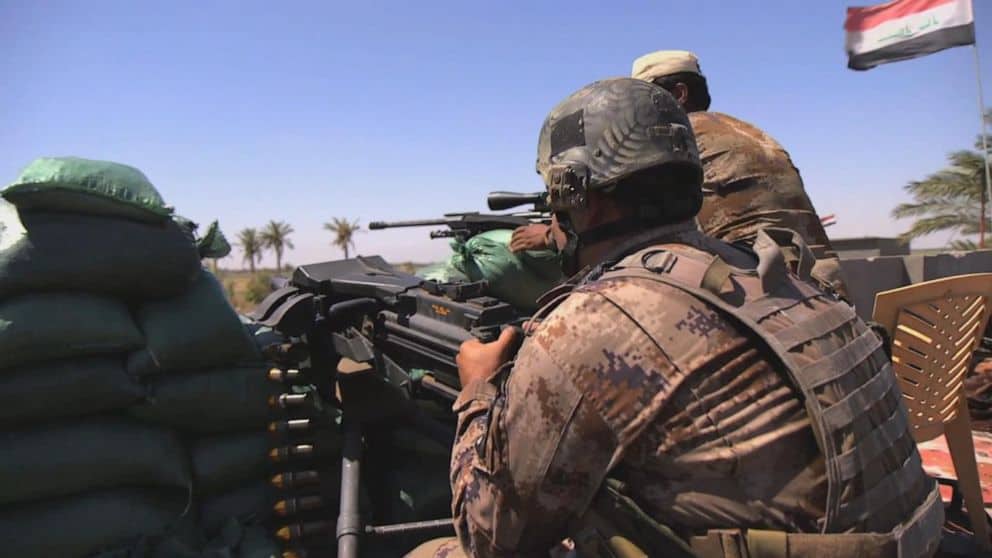Interviews
Damir Nazarov: Iraq and Interests Of The West
An interview with Reza Alghurabi, independent journalist and senior analyst of Iran and Iraq affairs

– Western propaganda show picture about Iraq, where “shia oppress sunni” against the background of the battle against terrorism. Could you list the Sunni organizations cooperating with Baghdad?
You might be referring to the unidentified bodies found in Babil province. In this regard, a committee has been formed to investigate the case. What has been revealed so far is that these bodies and graves were found by the state itself and did not belong to a specific time period and that they did not belong to a particular region. Some of the bodies belong to people who were killed in 2008 and the area where they were found has been under the control of al-Qaeda, ISIL and other Takfiri armed groups for years. Therefore, to claim all the victims were Sunnis killed by Shiite militias is incorrect. The joint statement of the official committee set up to investigate the matter also says that those people were killed as a result of various incidents. I personally believe that some Iraqi political groups that oppose Hashd al-Shaabi do not hesitate to increase pressure on this group in various ways.
– After integration Hashad al-Shaabi in armed forces. How you think, is it possible conflict between that military authorities?
I don’t think that will happen. In recent years, as the Iraqi Armed Forces have united to fight ISIS terrorists, a high level of coordination is formed between them and discords have been limited and exceptional if there have been any. Commanders of various Hashd al-Shaabi groups have finally accepted the prime minister’s order to join the armed forces, and so far there has been no challenge.
– Why is the Peshmerga not covered by the new decree(about militias integration in security forces) of the Prime Minister?
The issue of Hashd al-Shaabi has attracted a great deal of domestic and international attention. Internally, Sunnis, Kurds and some Shiite political figures, such as Muqtada al-Sadr, are opposed to Hashd continuing its activities. At the same time, the United States, Israel and some other countries in the region share this view. Therefore, the issue of integration into the armed forces has only included Hashd al-Shaabi. There is no doubt that this is a purely political issue. Those who believe that weapons should only be in the hands of the armed forces and that militia groups should not have weapons, do not answer why such decisions are not made for the Peshmerga militia in Kurdistan.
– Why is the US not leaving Iraq?
The United States did not invade Iraq only to withdraw from the country. The U.S. had entered Iraq before 2003 with deep planning. The whole procedure was part of Washington’s plan to seize Iraq’s rich energy resources, as well as planning for a new Middle East. In the new Middle East, Iran is considered a contained power that should not stand in the way of Washington’s plans and actions. Iran’s containment plan has not been a successful one, on the contrary, we are seeing an increase in Iran’s regional power, especially through its allies. America’s departure from Iraq means clearing the field for Iran and empowering it in the region. So the White House is reluctant to leave Iraq
– Can we say about the presence of the cold war in Anbar (province Iraq) between USA and Iran? The facts speak, Washington is recruiting different tribes to cooperate.
During the Iraq war with ISIS, Hashd al-Shaabi groups affiliated with Iran were located in the Iraqi-Syrian border and controlled parts of the border where elements of the ISIS would cross. At the same time, these militant groups were repeatedly attacked by American Jet fighters. The Americans are clearly reluctant to accept the presence of these groups, which are deemed as Iran’s proxies, along the Iraqi-Syrian border. Increasingly, it appears that the presence of Iranian-affiliated military groups at the Syrian border in Al-Anbar province is a means to strengthen Tehran-Baghdad-Damascus-Beirut Corridor. So the importance of this area to Iranians and Americans is clear. Washington is trying to block the presence of Iranian troops in that area in various ways, including equipping and approaching to the Sunni tribes of Anbar.
– The representative of Russia to the UN said the presence of 3,000 militants in Syria. Why alliance USA-SDF not fighting terrorists in the Eastern Syria?
Americans do not have a serious intention to fight terrorists in Syria and its eastern regions. In the future, they can be used as leverage to pressure Iraq and even the Syrian Kurds. Some Iraqi politicians argue that Americans can bring terrorists back to the country any time they want to pressure Iraq. America needs all its chess pieces to play, and armed militias are part of the game.





